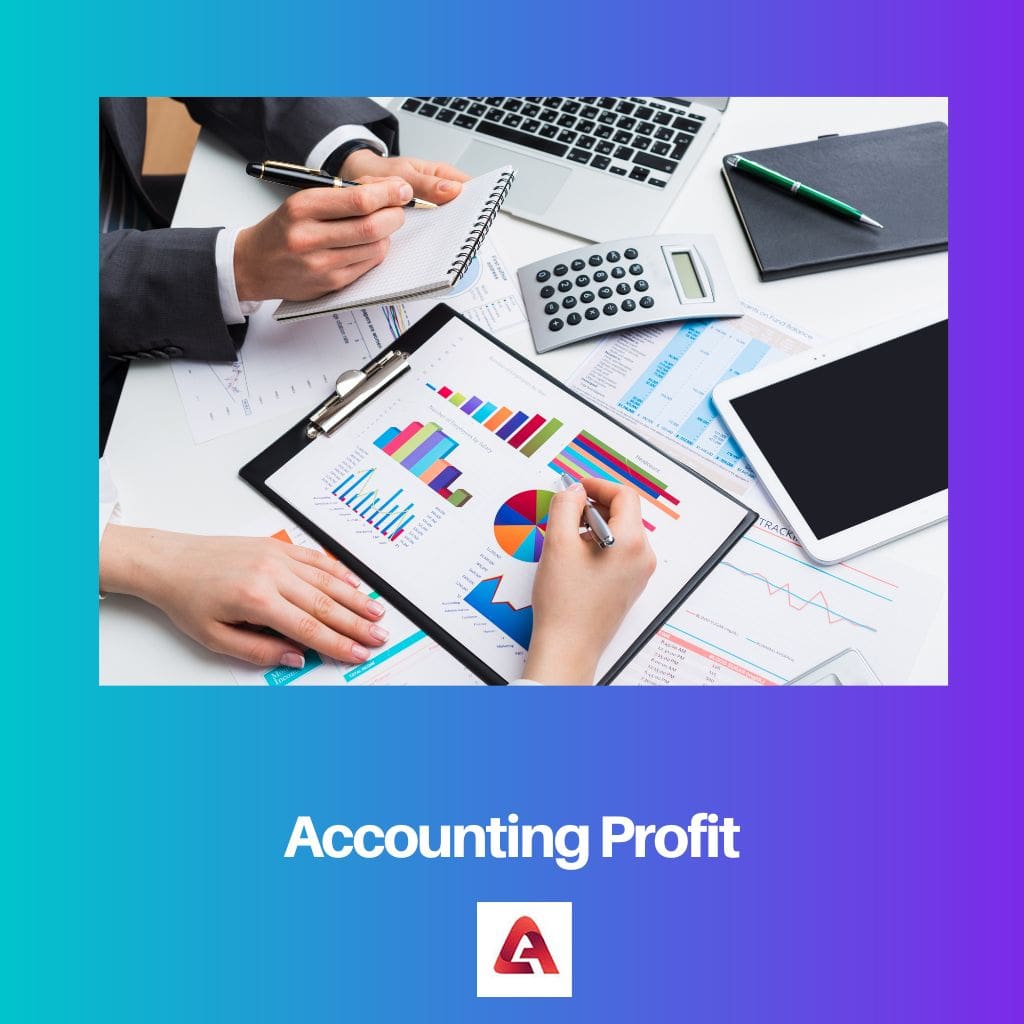Accounting profit is defined as a business’s net profit derived by deducting all the expenses and explicit costs from the revenue. To calculate Accounting profit, the standards set by Generally Accepted Accounting Principles (GAAP) are followed. It is also called the Net Income of a firm. Businesses are required to include Accounting Profit information in their financial statements. The matching principle says that every expense that occurred during a period to earn an income has to be recognized. Some costs might not happen during that period, but before showing the net income, they are deducted beforehand.
Explicit costs are those costs that are measurable and identifiable. An example is Labor cost; it is included in explicit cost because labour cost can be calculated depending on the amount paid as wages for a specific accounting period.
Implicit costs are not considered while calculating accounting profit because these costs are theoretical and have not been incurred. These costs are used to calculate the economic profit of a business.
Key Takeaways
- Accounting profit is the difference between total revenue and explicit costs, such as wages, rent, and materials.
- Accounting profit does not consider implicit costs, such as the opportunity cost of the owner’s time and the use of capital.
- Accounting profit is used by businesses to determine their taxable income and assess their financial performance.

How to Calculate Accounting Profit?
For calculating Accounting Profit for a period, you have to deduct all the expenses from the total earned revenue of that accounting period.
Profit = Income – Expense
Profits are shown at the end of the Income Statement. The expenses may exceed the revenue amount of that accounting period. But it doesn’t mean that the company has a negative profit; it means that the company will show a net loss in their Income Statement. This will show that the company doesn’t have enough revenue to cover the expense of that accounting period.
Advantages, Disadvantages, Limitations of Accounting Profit
Advantages
- Accounting profit shows the financial position and performance of a business.
- For comparing two businesses, accounting profit can be useful.
- Accounting Profit amount is helpful while making business decisions.
- A good accounting profit will encourage more investors to invest in the business.
Disadvantages
- Cash inflows cannot be indicated with Accounting profits.
- Accounting profit cannot be used to compare businesses if they use different methods for calculating depreciation, amortization, provisions, accruals, impairments, valuation, etc.
- Various countries have different methods and laws for calculating tax amounts and different ways of presenting financial statements.
- Accounting profit can be manipulated to show a better picture of a company.
Limitations
- Only a single period’s performance is measured.
- While calculating accounting profit, Return on Investment (ROI) is neglected.
- Some non-cash expenditures do not impact the Accounting Profit but surely affect the cash flow amortization and depreciation.
- https://www.tandfonline.com/doi/pdf/10.1080/00014788.1985.9729252
- https://heinonline.org/hol-cgi-bin/get_pdf.cgi?handle=hein.journals/austraxrum13§ion=27
- https://www.econstor.eu/handle/10419/109932

This article seems quite biased towards the advantages of accounting profit. It would have been more balanced by illustrating its disadvantages as well.
This article leaves out some details that could have been relevant to a more comprehensive understanding of the topic.
Informative piece, albeit somewhat dry. Including more illustrative examples could have made it more engaging.
It is a decent article, but I think the limitations of accounting profit could have been further emphasized.
While the article is informative, it neglects to provide more in-depth examples and case studies for a more detailed comprehension.
The article provides an interesting insight into accounting profit and its implications. However, I believe it could have delved deeper into certain aspects.
The post offers a comprehensive overview of accounting profit, but it could benefit from being more engaging and less technical.
I found the post very informative, but it would benefit from incorporating more real-world examples to elucidate the concepts.
The article offers a clear explanation of accounting profit. However, it would have been more engaging with a more conversational tone.
The article is very complete and exposes in detail the methods used to calculate the accounting profit and its advantages and many limitations. Highly educational and useful for business owners.
I completely agree. I also found it very educational and complete.